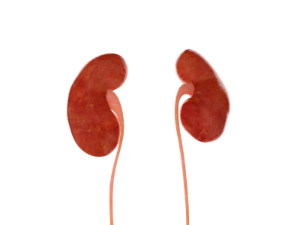Understanding kidney transplants

Kidney transplantation offers the best treatment for a child diagnosed with severe (permanent) kidney failure.
Dialysis is performed 3 to 5 times a week. It does not replace—or only partially replaces—normally functioning, healthy kidneys. Dialysis treatments can be exhausting and interfere with a child's routines, such as school attendance, traveling and other normal activities. Successful kidney transplantation is an important step to ensure that a child can enjoy a better quality of life.
Different types of kidney transplants
There are two kinds of kidney transplants: transplant from a living donor (usually a healthy relative of the recipient) and a non-living (or deceased) donor transplant.
Living donor transplantation implies thatthe child (patient) receives a kidney from someone who is still alive. One healthy kidney can do the necessary work that the child’s two failed kidneys cannot, so both the recipient and the living donor can resume/continue an active life with one healthy kidney each. A living donor is usually a relative or close friend of the transplant recipient. In some cases, however, a kidney can come from a stranger who just wanted to help someone else. These individuals are called ‘altruistic’ or ‘unspecified’ donors.
Non-living (deceased) donor transplantation is possible when a dying person has been identified as ‘organ donor’, provided their organ(s) are still functioning after death has been declared. To receive a deceased (non-live) donor transplant, children in need of a new kidney must have been thoroughly evaluated by the nephrology and surgical teams and their name put on the waiting list until a suitable donor kidney becomes available.
Preparing for a kidney transplant
The key to a successful kidney transplant is finding the closest possible blood and tissue matches. While family members are usually the first potential donors to be assessed, they aren’t always suitable matches.
Patients in need of a kidney transplant will undergo a series of tests, along with their potential donors, to make sure the donor kidney is a match. This helps reduce the chances that the patient’s body will reject the new kidney.
A nephrologist (kidney specialist) can explain these tests in greater detail to parents whose child needs a transplant.


